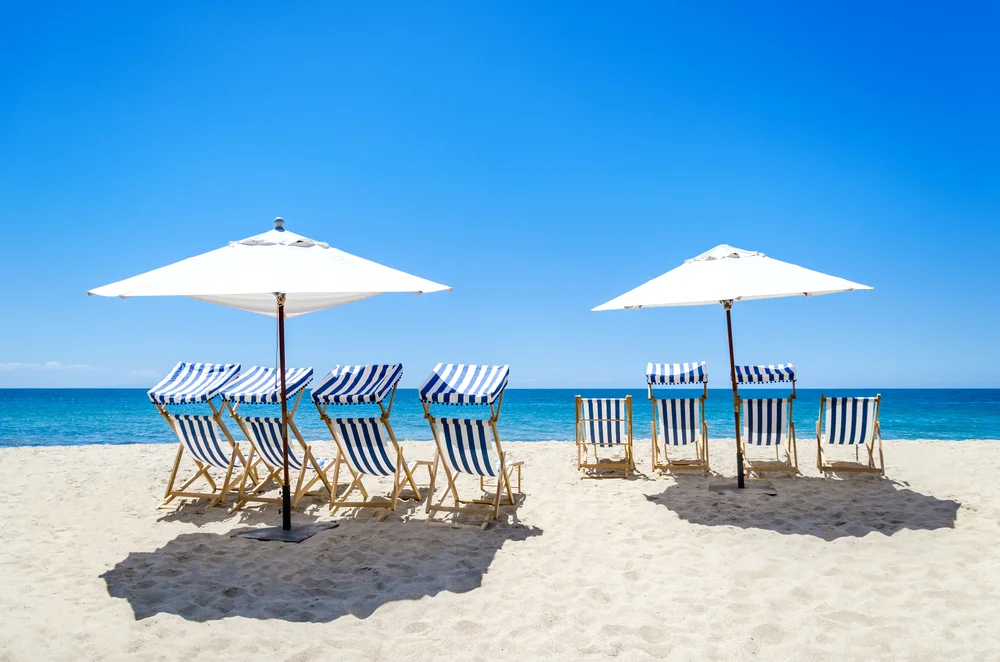Seasonality is a challenge for brands, whatever their sector of activity. They have to adjust their marketing strategy to take account of the needs of their audience at different times of the year.
But the summer period presents an additional difficulty: a drop in consumer attention and purchase intentions in verticals that are not linked to tourism/leisure.
To keep customers engaged over the summer, it’s crucial to understand consumer expectations. It means offering them engaging and well-targeted brand experiences.
In this article, we explain how the summer competitions can help overcome the challenges of the summer period. We share examples to inspire your future campaigns.
The main challenges of summer marketing campaigns
Summer is a challenging time for brands. Many of them see their sales fall drastically or have to manage a peak in activity. Here are the challenges they face during the summer months.
1. Attract the attention of less available consumers
Companies experience a slack period during the summer season due to a decrease in consumer attention. They are less available (due to holidays, travel, etc.), which has an impact on their interactions with brands, particularly on social networks.
During the summer months, engagement rates can drop drastically. A study by HubSpot shows that this drop can be as 30% during the summer holidays. It is essential for retailers to adapt their marketing campaigns by offering content that is visual, less intrusive and fun.
2. Follow your customers on their summer travels
In summer, consumers tend to be nomadic, particularly when on holiday and travelling to tourist areas. For brands, the challenge is to remain available, online or by simplifying the delivery of their products to holiday destinations.
For some sectors, which have a good physical presence throughout the country, the challenge will be to make these outlets visible. This is the case in supermarkets, by offering geolocated promotions. Sports clubs can offer summer passes to encourage users to visit the establishment closest to their destination, or by integrating digital services (an online sports application).
3. Meeting different needs during the summer holidays
One of the greatest challenges of seasonal marketing is to understand and anticipate changes in behaviour at different times of the year. Shoppers will be inclined to spend on leisure activities in summer and inclined to buy products in winter.
The products and services offered by retailers must be adapted to meet these needs. To take the example of supermarkets, brands need to take account of the fact that their customers are turning to fresh products that are easy to eat on the move (ready-to-go).
4. The impact of seasonality on stock management
The challenges of summer marketing campaigns are not limited to companies whose sales are falling. Sectors that experience peaks in activity can also be hit hard if they are not prepared to meet customer demand.
A survey carried out by McKinsey & Company revealed that 70% of retailers observe an overabundance of stock outside seasonal peaks. 40% of them believe that their stock management could be improved to adapt to seasonal cycles.
It is crucial for brands to adapt their stock management strategy in line with the seasons. This will help to avoid overstocking or stock-outs during the high season, both of which have an impact on profitability, image and customer satisfaction.
3 good reasons to organise competitions in summer
To meet these marketing challenges and engage their customers over the summer period, brands can capitalise on gamification. This strategy involves introducing fun, interactive formats (such as competitions) into its communication campaigns.
Here are 3 good reasons to adopt Playable marketing this summer and 3 examples to get you going!
1. Boost your communication and grab consumers’ attention
Summer is a time when consumers are on holiday and looking for entertaining content. By organising a competition, brands offer them a fun and engaging experience. They also catch the attention of an audience that is less receptive to traditional messages.
Competitions make it possible to multiply the points of contact boosting the brand’s visibility organically (on social networks).
Example: Showroomprivé’s Summer Trips campaign achieved its visibility objective at the height of the summer season, highlighting Parc Astérix as an attractive partner for generating leads. The results have been impressive, both in terms of participation (177K users in total) and engagement (with over 186K games played and an average session duration of 1min49).
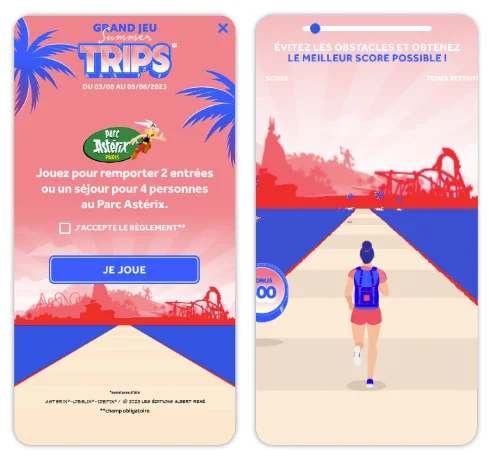
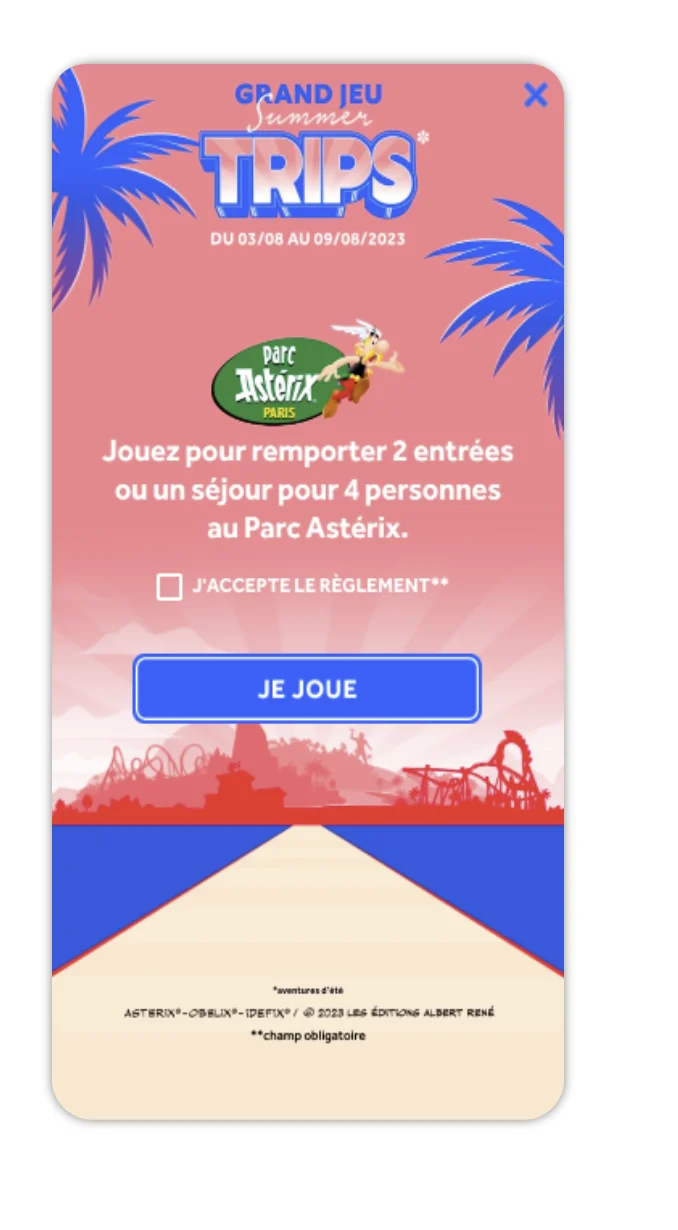
2. Maintain sales during a slower period
Summer can be a slow period for industries. In this context, competitions are a way of stimulating sales. The format be used to promote the summer offer in an original way (by encouraging the creation of user generated content). It’s also a way of encouraging impulse buying by distributing time-limited discount vouchers.
Example : Altarea Cogedim has launched its Summer Test campaign to energise its shopping centres during the summer sales period. This
personality test was designed to generate point-of-sale traffic and stimulate purchases by sharing personalised product recommendations. The campaign also recruited new fans, leads and opt-ins, helping to enrich the customer database and to maximise the impact of the summer highlight.
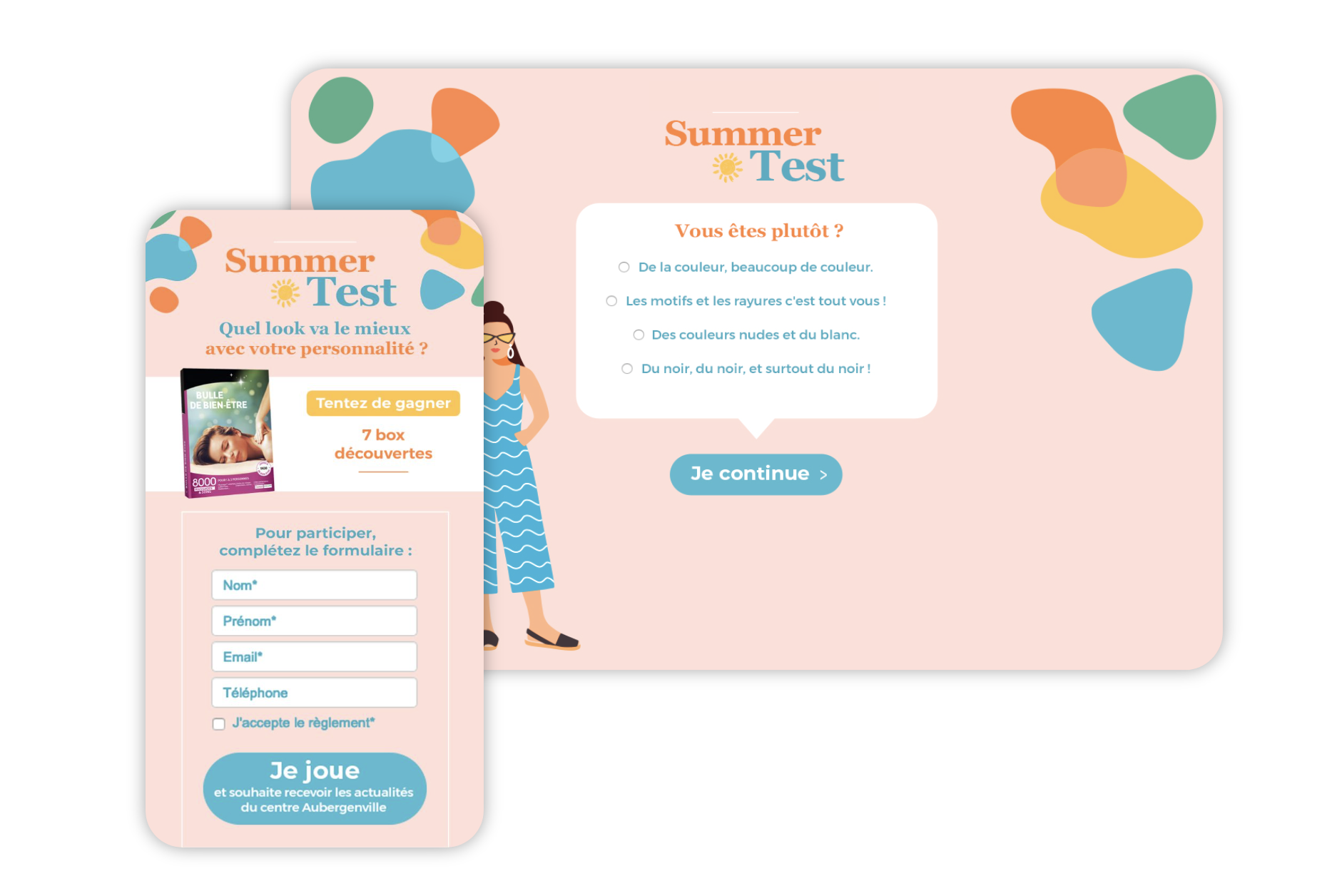
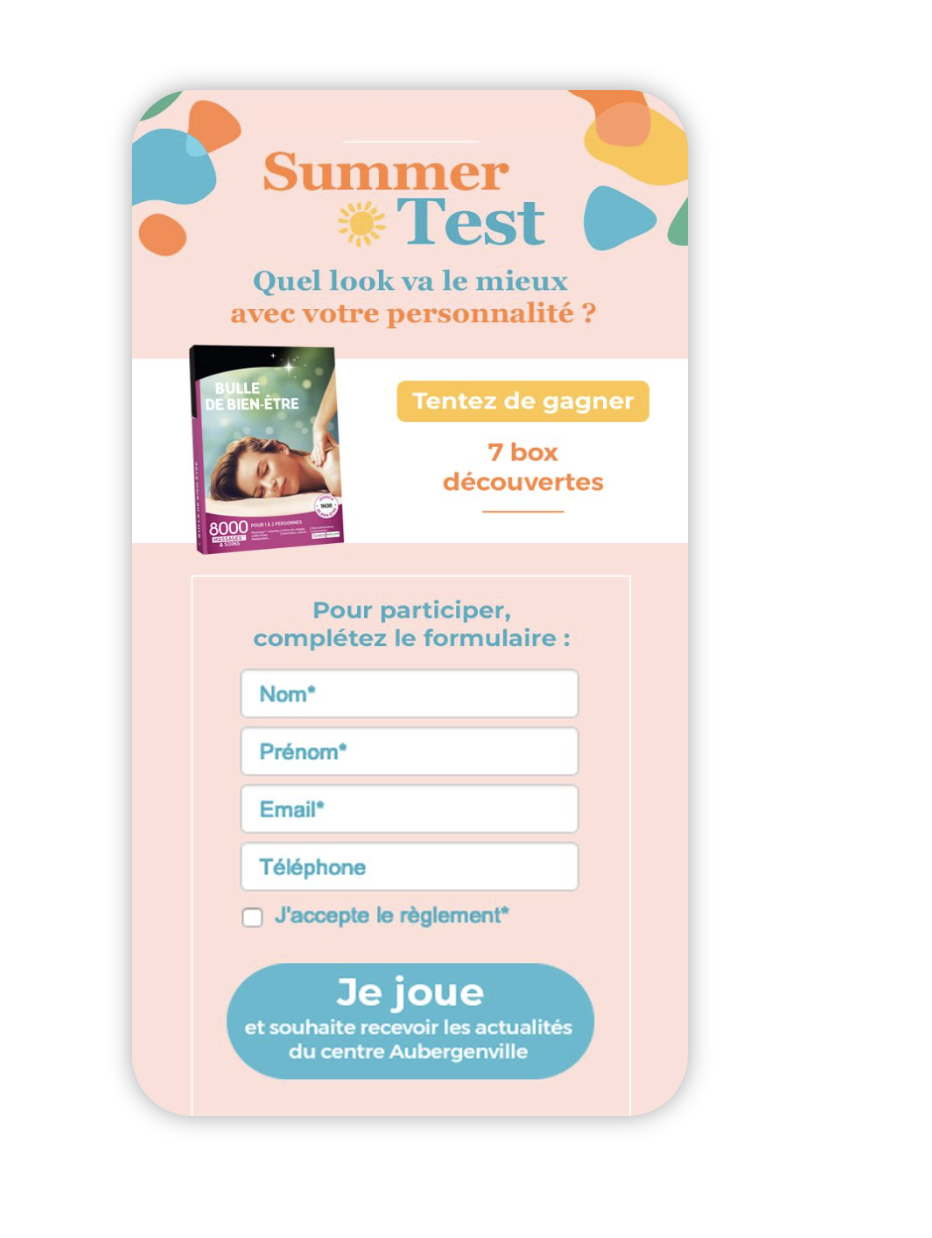
3. Prepare back-to-school marketing campaigns and collect valuable data
Summer competitions can be used to gather valuable information about customers (product preference, consumption habits, budget, etc.) This data is obtained via the game mechanics themselves (with a Swiper) or using a form (at the start of game or at the end of the experience to unlock the reward).
This data is used to prepare and optimise back-to-school campaigns and communications throughout the year. Using the information collected, the brand can segment its audience and deliver impactful retargeting campaigns (thanks to personalised content).
Example: The Tape à l’Oeil brand has opted for a summer competition to strengthen its relationship with its customers. The choice of a fun game mechanic such as the Piñata not only boosted the brand’s visibility during the summer period. But gamification also made it possible to collect data and attract qualified leads (thanks to an opt-in form) which the company could then retarget through an e-mailing campaign.
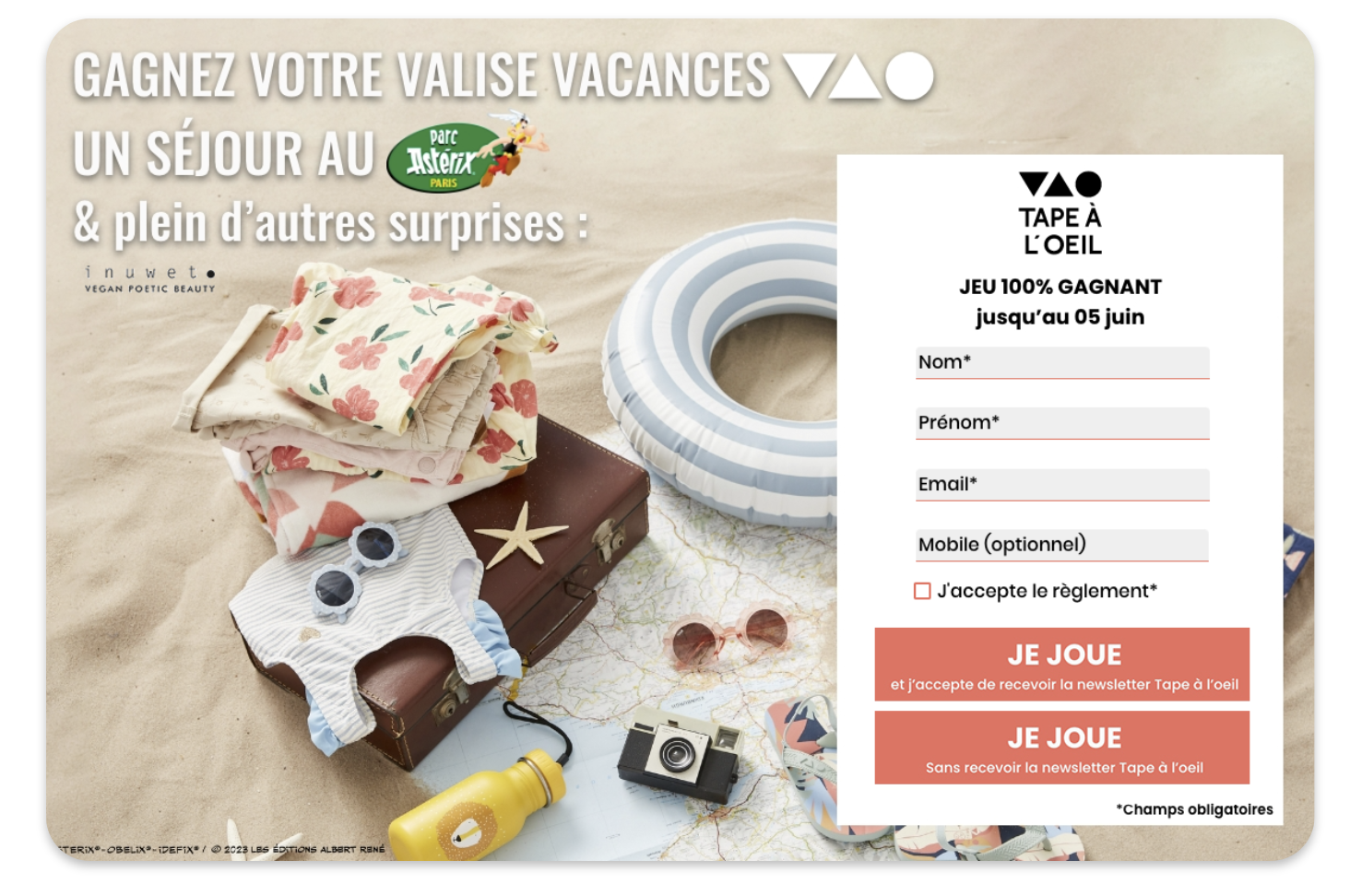
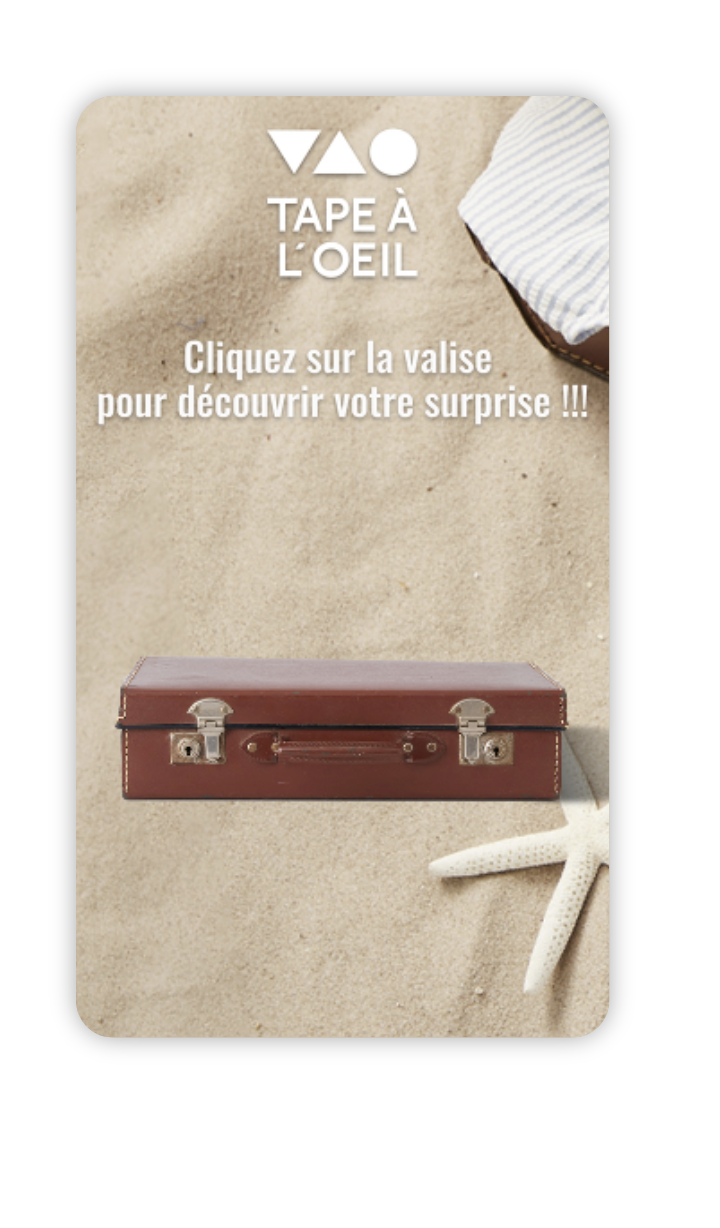
Conclusion
Competitions are relevant in summer to keep your customers engaged, boost your sales and optimise your campaigns. It’s an ideal format for the summer period, making your communication dynamic and fun. Discover our marketing game formats and boost your visibility during the summer holidays!


